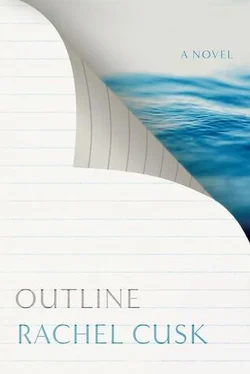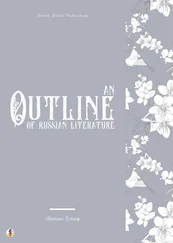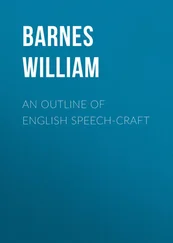While they were eating the doorbell had rung: it was Stavros from next door, who had just dropped by to show them a puppy from the new litter his bitch had just produced. Of course the children were wild about this puppy: they left their food to get cold on its plates and went to stand around Stavros, begging in turn to be allowed to hold it. It was a very tiny puppy, its eyes barely open, and Stavros said they would have to be very careful, but he let each of them hold it one by one. ‘I watched each child’, she said, ‘become transformed, as it received the puppy into its arms, into a creature of the utmost gentleness and caution, so that it was almost possible to believe the puppy had brought about an actual refinement in their characters. Each of them stroked the little soft head with their fingers and whispered into its ears, and this would apparently have gone on and on had Stavros not said that he needed to go. The puppies, he mentioned, were for sale; and at these words the children began to bounce up and down with the most genuine, infectious excitement, so that much to my own astonishment,’ she said, ‘I began to feel excited too. The thought of relenting, and of the love I would receive if I did, was almost irresistible. Yet my knowledge of Stavros’s bitch, who is a fat and disagreeable animal, was stronger. No, I said to him, we weren’t going to have a dog; but I thanked him for showing it to us and he left. Afterwards the children were very disappointed. You always spoil everything, my son said to me. And it was only then, when the spell the puppy had cast had completely worn off, that logic returned to me, and with it a sense of reality that was so harsh and powerful it seemed to expose our household as mercilessly as if the roof had been torn off the building in which we stood.
‘I sent the children to their rooms, without finishing their supper, and with my hands trembling I sat at the kitchen table and began to write. I had in fact once bought them a puppy, you see, two years before, under circumstances almost indistinguishable from those I have just recounted, and the fact that we had returned to that same moment, having learned nothing, made me see our life and particularly the children themselves in the coldest possible light. It was, as I say, two years ago now: the dog was a very pretty animal we called Mimi, with a curly tobacco-coloured coat and eyes like two chocolates, and when she first came to live with us she was so tiny and charming that the work I had to do looking after her was balanced against the pleasure the children took in playing with her and showing her off to their friends. It could almost be said that I didn’t actually want them to have to clean up after Mimi, who made the most foul-smelling messes all over the house, for fear that their pleasure would be spoiled; but as Mimi grew bigger and more demanding I came to want them to take some responsibility for her, since it was through their choice — as I constantly told them — that we had got a dog in the first place. But very quickly they grew inured to these remarks: they didn’t want to take Mimi for walks or clean up after her; what’s more, they began to get annoyed by her barking, and by the fact that she would sometimes go into their rooms and create havoc and destroy their things. They didn’t even want her in the sitting room with them in the evenings, because she wouldn’t sit still on the sofa but paced around and around the room, obstructing their view of the television.
‘Mimi, as well as quickly growing to be far bigger and more energetic than I had expected, was also obsessed with food, and if I took my eye off her for a moment she was up on the kitchen counters, foraging and eating everything she could find. I quickly learned to put things away, but I had to be very vigilant, and also to remember to shut all the doors in the house so that she couldn’t go into the other rooms, doors the children were forever leaving open again; and of course I had to take her for walks, when she would pull me along so fast I thought my arm would come out of its socket. I could never let her off the lead, because her love for food sent her running off in all directions. Once she ran into the kitchen of a café by the park and was found by the furious chef eating a whole string of sausages he had left on the counter; another time she snatched the sandwich right out of the hand of a man who was sitting on a bench eating his lunch. Eventually I realised I would have to keep her tied to me forever while we were out, and that in the house I was similarly bound to her, and it began to dawn on me that in getting Mimi for my children I had, without much thought, entirely given away my freedom.
‘She was still a very pretty dog, and everybody noticed her. So long as I kept her on the lead, she would always receive the most lavish compliments from passers-by. Harassed as I was, I started to become curiously resentful and jealous of her beauty and of all the attention she got. I began, in short, to hate her, and one day, when she had been barking all afternoon and the children had refused to take her out, and I discovered her in the sitting room chewing to shreds a new cushion I had just bought while the children stared, unconcerned, at the television, I found myself seized by such an uncontrollable fury that I hit her. The children were deeply shocked and angry. They threw themselves on Mimi, to protect her from me; they looked at me as though I were a monster. But if I had become a monster, it was Mimi, I believed, who had made me one.
‘For a while they reminded me constantly of the incident, but gradually they forgot about it, and so one day under similar provocations it happened again, and then again, until my hitting Mimi became something they almost accepted. The dog herself began to avoid me; she looked at me with different eyes and became very devious, sneaking around the house destroying things, while the children developed a very slight coolness in their manner towards me, a new sort of distance, which liberated me in a way but also made my life less rewarding. Perhaps to compensate for this feeling and to try to close the distance between us, I decided to make a great fuss of my son’s birthday and stayed up half the night baking him a cake. It was a cake of the greatest beauty and extravagance, with chestnuts in the flour and shaved chocolate curls on top, and when it was finished I put it well out of Mimi’s reach and went to bed.
‘In the morning, after the children had gone to school, my sister stopped by to see me. In my sister’s company I am always a little distracted from my own purpose; I have a sense that I need to perform things for her, to present them to her, to show her my life rather than let her see it naturally, as it really is. And so I showed her the cake, which she would have seen in any case as she was coming to the birthday party later. Just then there was the sound of a car alarm from the street, and thinking it must be her car — which was new, and which she disliked parking outside my house because the area, she says, is not as safe as where she lives — she panicked and ran outside. I followed her, because as I have already said, when I am with my sister I see things from her point of view rather than my own, am compelled to enter her vision, as I used to be compelled to enter her room when we were children, always believing it to be superior to my own. And as we stood out in the street making sure that her car was intact, which of course it was, I became aware of this feeling of having deserted my own life, as once I would desert my room; and I was suddenly filled with the most extraordinary sense of existence as a secret pain, an inner torment it was impossible to share with others, who asked you to attend to them while remaining oblivious to what was inside you, like the mermaid in the fairy story who walks on knives that no one else can see.
Читать дальше












